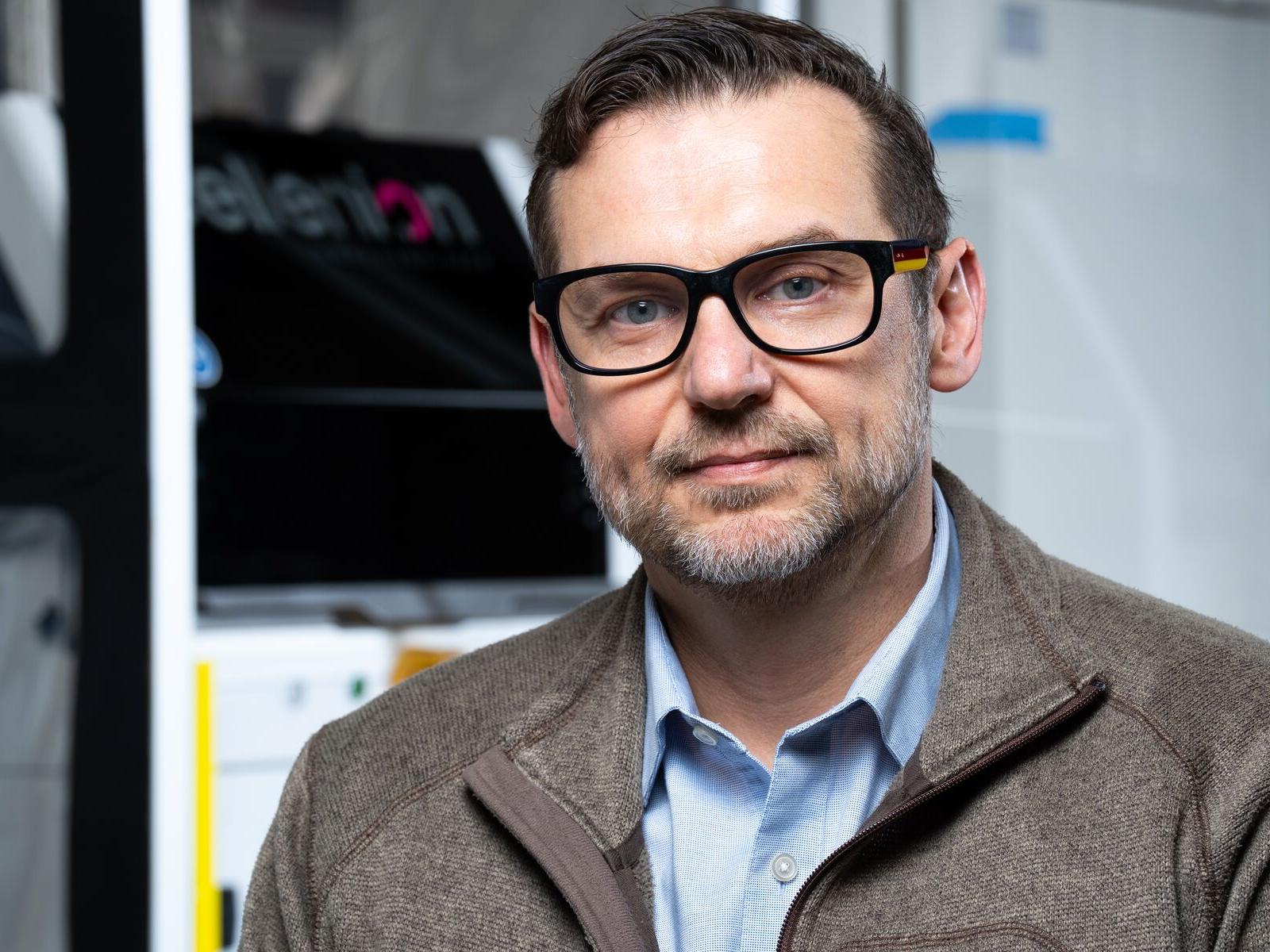PNNL Biologist Awarded Fellowship with Society of Industrial Microbiology and Biotechnology
Alex Beliaev will be honored July 29 at the society’s annual meeting

Alex Beliaev, a biologist at Pacific Northwest National Laboratory, will be recognized July 29 with his fellowship award with the Society for Industrial Microbiology and Biotechnology.
(Photo by Andrea Starr | Pacific Northwest National Laboratory)
Alex Beliaev, a biologist at Pacific Northwest National Laboratory (PNNL), was selected as a fellow of the Society for Industrial Microbiology and Biotechnology (SIMB).
Beliaev, who was awarded the fellowship for his contributions to industrial microbiology, will be honored July 29 at the 75th SIMB Annual Meeting and Exhibition in San Francisco, CA.
“I am deeply honored to be selected as a fellow by the Society for Industrial Microbiology and Biotechnology,” said Beliaev. “This recognition underscores the collective efforts of my collaborators and the transformative potential of microbial systems in addressing global challenges. It’s an exciting moment to reflect on how our research is paving new pathways for biotechnological innovations.”
The nomination highlighted Beliaev’s leadership and dedication to advancing industrial microbiology, particularly his research focused on understanding microbial processes and integrating cutting-edge technologies into systems biology methodologies for field applications.
He currently leads genomics-enabled research on microbial energy-producing systems and uses systems-level information to develop modeling approaches for engineering platforms that produce next-generation biofuels and bioproducts. At PNNL, Beliaev is the principal investigator for several large multi-institutional projects, amounting to more than $2 million in annual funding from the Department of Energy (DOE).
Among Beliaev’s most notable work over the last 20 years is his groundbreaking research focused on unraveling the genetic and biochemical underpinnings of dissimilatory metal reduction in bacteria.
“His early research at the University of Massachusetts and Oak Ridge National Laboratory led to the identification of the first metal-reducing gene cluster in Shewanella oneidensis MR-1, which encodes outer-membrane cytochromes MtrC and MtrA, alongside the outer membrane protein MtrB,” the nominators wrote in their letter. “These discoveries established the essential roles of these proteins in the reduction of soluble and insoluble metal oxides, unveiling their localization to the outer cell membrane. His work continued to add to this fundamental understanding, elucidating the modular organization of the OmcA–MtrCAB complex, facilitating electron transfer to insoluble substrates.”
The nomination also recognized Beliaev’s contributions to understanding extracellular electron transfer and microbe–mineral interactions, significantly contributing to the understanding of environmental remediation processes.
Beliaev is also recognized for his work on understanding material and energy partitioning in a broad range of microorganisms. His research revealed the intricacies of energy conversion processes in microbes, which explores the natural mechanisms that govern the functioning of multispecies systems and their use for biotechnology applications. His recent work focuses on identifying interspecies interactions in microbial communities through the application of multiomics approaches and new bioinformatics tools. Beliaev is developing novel approaches for engineering microbial communities for controllable outputs and is targeting new synthetic ecology tools for designing consolidated bioprocessing strategies with multiorganism consortia.
In addition to his role at PNNL, Beliaev leads the Cell Signaling and Communication Integrated Research Platform at the Environmental Molecular Sciences Laboratory, a DOE, Office of Science user facility on the PNNL campus. He also holds a joint appointment with the Centre for Agriculture and the Bioeconomy at Queensland University of Technology, where he is helping to build new synthetic biology approaches for the consolidated bioprocessing of renewable feedstocks into various chemicals, fuels, and materials. He serves as co-principal investigator on the Australian Research Council-funded Center of Excellence in SynBio.
Published: July 28, 2025